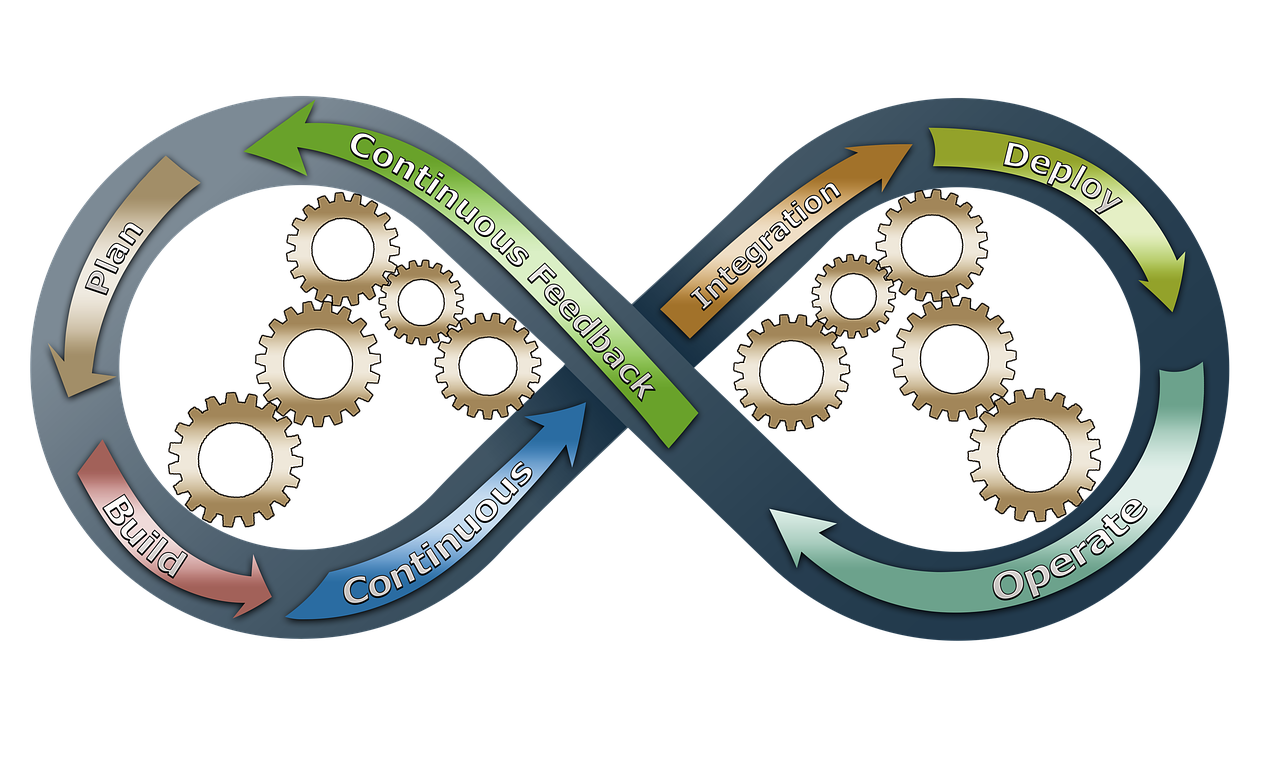With over 2 million certified professionals in 2024, ITIL is the world’s most popular IT service management methodology.
It is a set of best practices relating to ITSM (Information Technology System Management) which serves as a guide for companies undergoing digital transformation.
It allows them to manage IT services efficiently, by the intrinsic needs of the commercial structure to achieve its objectives.
In this article, you will learn what ITIL is, its importance for managing an IT service and the different levels of ITIL certification. You will also discover tips on the best way to prepare for the certification exam and, above all, how to pass it successfully.
Understanding ITIL and its Importance

To fully understand what ITIL is, it is necessary to know the history of this framework and the changes it has undergone over time.
History and evolution of ITIL.

ITIL was born at the end of the 1980s, from the reflections of the CCTA (Central Computer and Telecommunications Agency).
This British government agency was contacted by the Government of Great Britain to improve the quality of public IT services to which customers were complaining greatly.
To this end, the CCTA has produced a collection of recommendations to follow to resolve the problem. This set of 30 documents was so appreciated for its relevance that it was established as a standard of good IT service management practices by professionals in the field. ITIL has undergone several evolutions, moving to versions V2, V3, and V4 respectively from 1999 to 2004, in 2007 than in 2019.
Main concepts and principles of ITIL
ITIL V4 certification is oriented around the concept of “Service Value System” and contains 5 major elements:
- the service value chain,
- the 34 ITIL practices defined in V3,
- the 7 guiding principles,
- ITIL governance,
- the amelioration keeps going.
Regarding the service value chain , it is based on 6 activities that can be combined in different ways to obtain different processes. These activities are planning, improvement, engagement, design, construction and delivery.
When it comes to the 7 guiding principles of ITIL V4, it’s first about focusing on value. Then it’s about starting where your business is, iterating with feedback, collaborating and promoting visibility.
The last 3 principles state that you must think and work with a holistic approach, focus on simplicity and remain practical, then optimize and automate.
ITIL V4 also includes 4 dimensions to consider when managing IT services, namely organizations and people, information and technology , partners and suppliers, value flows and processes.
Benefits of ITIL Certification for Professionals and Organizations
Having an ITIL certification allows IT professionals to acquire highly sought-after skills in IT service management. This approach can allow them to increase their value on the job market and access positions of responsibility, which equates to better remuneration.
For businesses, ITIL certification will allow them to standardize internal processes for providing IT services while remaining very flexible. At the end of this training, they will be able to perfectly meet the needs of customers on a global scale and will be more competitive.

The different levels of ITIL certification
There are 5 levels of ITIL certification: Foundation, Practitioner, Intermediate, Expert, Master.
Description of certification levels
The Foundation level is the initial level of ITIL certification. Taking training at this level is ideal for IT professionals who want to know the fundamentals of ITIL. The training will also allow them to know how the use of the repository can be used to significantly improve IT service management.
Practice is the second level of ITIL certification. Its objective is to allow people certified on Foundation to apply the framework in their daily work environment. The content of the Practitioner level training covers a range of elements allowing continuous improvement of business performance such as DevOps, Agile or Lean methodologies.
Concerning the third level of certification called “Intermediate”, it is available in two categories: Lifecycle and Capability. The first refers to the life cycle of IT services, while the second concerns the operational aspect of management, as well as responsiveness to incidents . These two categories contain 5 and 4 training modules respectively. You can choose between Lifecycle and Capability or follow both courses.
For people with in-depth knowledge of ITIL and its best practices, the Expert level is recommended. This certification proves that the person who holds it can apply the ITIL approach in its entirety within a company. The Master level is rather reserved for professionals with ITIL certification at Expert level , with at least 5 years of experience in a position in line with the standards.
Tips for Choosing the Right Level
To choose the appropriate certification level, first consider your level of knowledge of ITIL practices. Also take into account the ITIL certifications you already hold and the prerequisites you need to meet to obtain those that interest you. Also make sure that the targeted level of certification is consistent with your professional objectives, as well as the needs of the organization where you practice.
Preparing for ITIL Certification and taking the Exam
To obtain ITIL certification, it is essential to prepare well. This first requires having the appropriate study materials. In this context, acquiring the official content of the ITIL V4 documentation is highly recommended. By reading it, you prepare your mind to correctly assimilate the information related to the training you will follow on this subject.
The next step consists of following official training, provided by structures accredited by AXELOS which awards ITIL certification. You benefit from excellent quality teaching provided by experts in the field, which gives you the IT service management skills you are looking for. With some of these organizations, the training even includes the cost of the certification exam. You should budget between on average.
You can also strengthen your capabilities by attending ITIL certification workshops for better preparation. The daily application of the practices acquired during ITIL training in your professional life is also strongly recommended. Add to that practice exams to practice. You can even use Lemon Learning’s learning solutions during your preparation, to more easily review certain concepts and better understand ITIL.
When you are ready, register with an approved center to take the certification exam by paying the associated fees worth between .
Then continue to review the various practices until the fateful day, then restore all your knowledge. Make sure you approach the certification exam calmly and in a relaxed manner. This is necessary so that you can answer the questions to the best of your ability.
After Certification — Opportunities and Advancement
When you obtain ITIL certification , new horizons open up to you when it comes to your professional career. You can access positions as DSI (Director of Information Services), project manager, technical service manager, etc. You can even consider setting up your own business and becoming an ITIL consultant.
ITIL certification also opens up the job market to you in any part of the world, knowing that it is internationally recognized . After obtaining it, however, it is necessary to continue learning to pass the higher levels of certification. This also allows you to be informed of the latest trends relating to IT service management. You can even obtain certifications complementary to ITIL such as ISO 20000 or Lean IT, which expand your range of skills.
Conclusion
ITIL is a very useful approach to managing an organization’s IT services more effectively. Obtaining an ITIL certification makes a person more competent in managing these systems and provides them with tremendous career prospects.
Companies certified on this benchmark will instead benefit from an improvement: in the quality of service offered, in the customer satisfaction rate, and in better competitiveness. ITIL certification is available in several levels to choose from according to your needs and it is essential to prepare well to pass the exam.